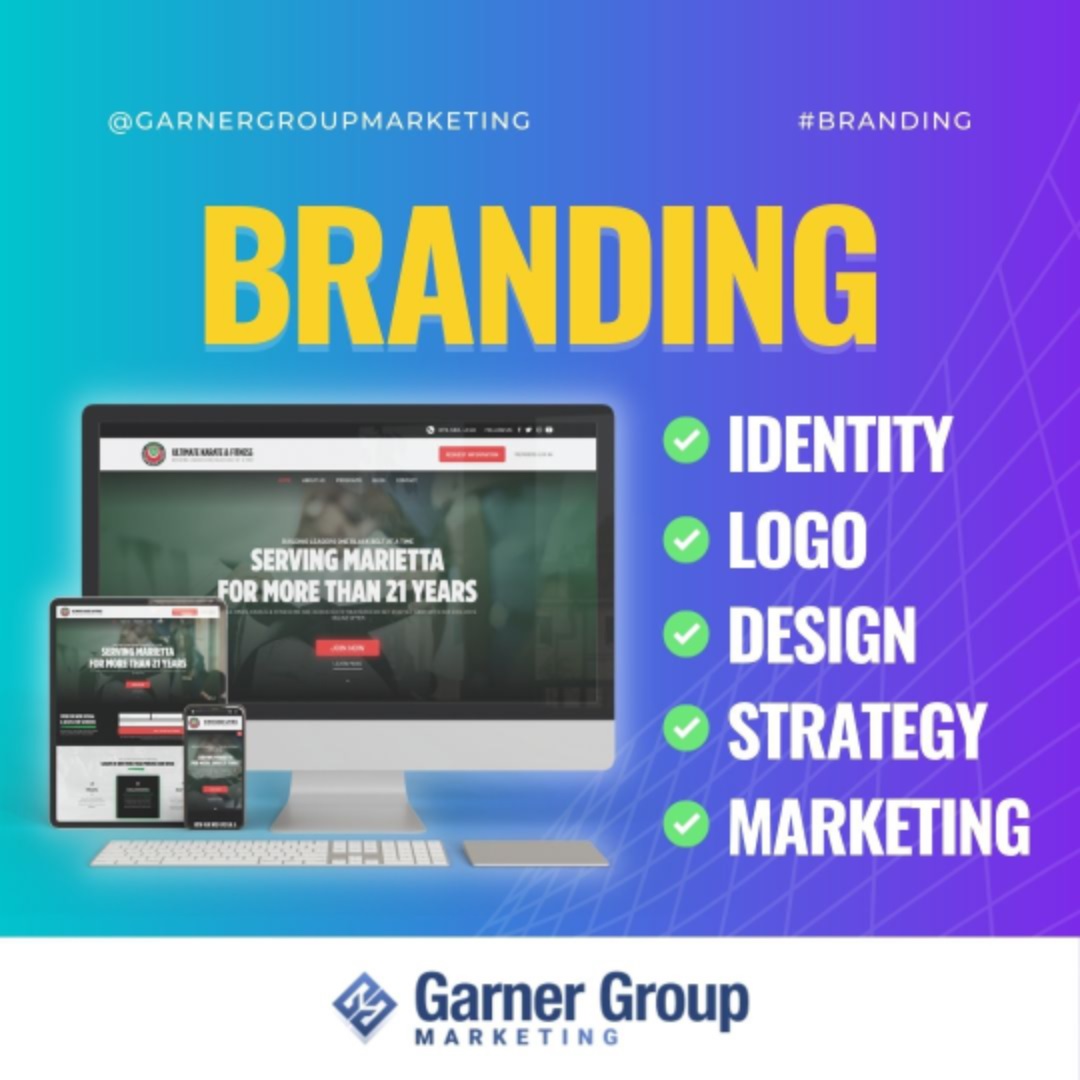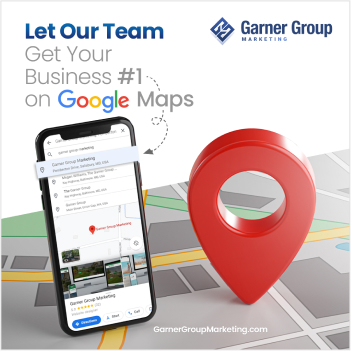Website branding and brand visual identity are two elements that are crucial for any successful business.
While many people think of branding as simply creating a stylish logo or choosing a catchy color scheme, it’s actually much more than that.
A strong branding strategy can differentiate your business, build trust and credibility with customers, and improve your online presence through search engine optimization (SEO).
If you’re looking to supercharge your brand’s online visibility, then you’ve come to the right place! In this article, we’ll dive deep into the nitty-gritty of website branding and visual identity. We will also share with you the best practices that can help create an outstanding brand that shines and generates leads.
What is Branding?
Branding is the overall process of creating a unique name for a business, product, or service that covers a variety of marketing materials, from business cards to a website.
In essence, branding is about more than just a logo; it is the cornerstone of any successful business. It’s a way to bring a company’s vision and strategy to life, creating a lasting impression on customers and their competitors.

What is Website Branding?
Website branding is a more specialized subset of branding that is focused on creating a recognizable online presence through your website. It involves creating a distinct and memorable brand identity that resonates with your target audience online.
What is Visual Identity for a Website?
Visual identity for a website is the collection of design elements that work together to create a clear and consistent look and feel for a website.
A well-planned brand visual identity ensures that the website appears professional and appealing. Moreover, a killer visual identity is not solely about design. It must enhance overall user experience and brand image which can help a website stand out from its competitors.
What’s the Difference Between Website Branding and Visual identity?
In web design, website branding is shown through messaging, tone of voice, and the entire user experience. On the other hand, visual identity is expressed through the design elements of the website, such as color schemes, typography, images, layout, and overall style, to achieve a cohesive aesthetic.
Website branding is the personality and values of a business, while visual identity is the specific visual elements that represent the brand. Website branding and visual identity are related, for they both serve important functions in web design.
The Significance of Website Branding and Visual Identity for Businesses
As we already know, branding and visual identity are critical components of a successful web design for businesses.
1. Establish Brand Recognition
A brand that stands out is easily recognized and remembered by consumers, which could affect their purchasing decision or increase the chances that they will engage with your website.

Additionally, established brand recognition can prompt people to search for your website or brand by name. This can ultimately help your business become more prominent and competitive, not just in search engine rankings, but also through positive word-of-mouth marketing.
2. Differentiate from Competitors
When customers are faced with a wide range of choices, a dominant and differentiated brand can help capture their attention.
Differentiation is creating an unforgettable image for your brand. This can include things like one-of-a-kind product offerings, exceptional customer service, or a distinct visual identity that stands out from the competition.

3. Build Trust and Credibility with Customers
Building trust and credibility with customers is vital to the success of any business. Customers give their trust when they believe in your brand and have confidence in the products and services you offer. They know that what you provide is credible because your brand is reliable, professional, and reputable.

4. Build Customer Loyalty
Customers are the lifeblood of any business, it’s important to keep them coming back and maintain the relationship.
Take a look at these latest customer retention statistics to give your business the edge it needs to succeed:
- 89% of companies say that excellent customer service plays a huge role in customer retention..(SEMrush)
- Companies have a 60-70% chance of selling to an existing customer vs. a 5-20% chance of selling to a new customer. (Zippia)
- Customer retention has a huge impact on ROI – 5% increase in CR results in 25-29% increase in revenue. (Thinkimpact)
- American companies lose $83 billion because of bad customer retention strategies. (Neil Patel)
- 67% of returning customers spend more in their third year of buying from a business than in their first six months. (Mertech Zone)
- 55% of customers now trust companies less than they used to. (HubSpot)
- 59% of American consumers say that once they’re loyal to a brand, they’re loyal to it for life. (Acquia)
Establishing a dynamic brand that delivers on its promises can lead to customer loyalty. When customers feel that they can count on your brand, they’ll keep coming back for more. With lots of loyal customers, you can have long-term business success and growth.
5. Consistent Website Branding and Visual Identity
If you’re consistent then you’re easily recognizable.
Having consistent branding and messaging across all marketing channels establish good rapport to the customers and helps reinforce your business’ message, creating an unwavering impact.
And since you are consistent in your branding, you are meeting customers expectations.

6. Improve User Experience
One of the important goals of a website is to fulfill the user’s needs. This implies that upon accessing your website, all the relevant information about your business will be readily available to the users.
A well-arranged and organized brand visual identity makes it simpler for users to navigate and understand the information presented on your website. With such an experience, visitors will most probably stay longer and interact with your site.

Best SEO practices for Website Branding and Visual Identity
If you’re looking to boost your SEO through website branding and visual identity, there are a few best practices you should keep in mind. These practices can help you create a solid and effective brand image that relates with your target audience while also improving your search engine rankings. Here are a few tips:
1. Match Content with Search Intent
Search intent, also referred to as user intent, is the main purpose of a search query. Understanding and fulfilling user intent is Google’s top priority. A site that ranks on page one of search results means it passed all of Google’s tests for search intent.
Quick tips:
- Identify the intent behind a user’s search query
- Create original and high-quality content
- Use the right keywords
- Use different types of content like blogs, infographics, and videos
- Create content that is easy to read, view, or listen to
- Continuously evaluate and optimize your content based on user feedback, engagement metrics, and search rankings
2. Create Engaging Title Tags and Meta Descriptions
The clickable headlines in search engine results (SERPs) are the title tags. While the description found below the title tag is the meta description. These two elements let Google and the users have a quick insight into what the page or content is all about.
Title tags and meta descriptions are two of the most vital components of a webpage because they are the first pieces of information that will affect the user’s decision about whether they will click and proceed to your site or not.
Quick tips:
- Title tags should be around 50-60 characters
- Meta descriptions should be around 155-160 characters
- Make it captivating
- Avoid clickbait or misleading description
- Include targeted keywords
3. Optimize Website Images
If properly done, website images can highly contribute to increasing organic traffic and SEO.

Quick tips:
- Choose the right file format, with JPEG, PNG, and SVG being the most commonly used for website images
- Compress images without affecting their quality
- Use an appropriate image size: large file should be no more than 1MB
- Use descriptive file names and include related keywords
- Add alt text to help the search engine understand the content of the image
4. Improve Page Loading Speed
One of the key elements of an SEO web design is website speed. It is also a fundamental ranking factor in Google’s algorithms.
Quick tips:
- Compress images
- Minimize HTTP requests
- Use a CDN (Content Delivery Network)
- Use browser caching
- Minimize redirects
5. Build a Good Internal Linking Structure
Good internal links can improve your rankings if used correctly. They establish a hierarchy of information on your website to make it easier for Google to understand the content on your page.
Quick Tips:
- Determine the key pages on your site that you want to rank and drive traffic to
- Identify which of your website’s pages relate to each key page
- Use descriptive anchor text with relevant keywords to link to key pages
- Avoid using too many links on a single page
- Use breadcrumbs to navigate to other pages
6. Use SEO-Friendly URLs
Both users and search engines can immediately get an idea of what the destination page is about if you use SEO-friendly URLs.
Example:
http://garnergroupmarketing.com/the-benefits-of-advertising-online/
Quick Tips:
- Keep it concise; use simple words in your URL
- Use hyphens to separate words instead of underscores or spaces
- Include related keywords, especially in the first 3-5 words
- Use only lower-case letters
- The ideal URL length is 60 characters
7. Get Authoritative Backlinks
A powerful website branding and visual identity can attract other websites to link to your content in their content. When other websites link to your site, it signals search engines that your website is valuable, relevant, and authoritative, which is a key factor in SEO
Quick tips:
- Create original, high-quality content that other websites will want to link to
- Reach out to other websites in your niche
- Offer to write guest posts for other websites
- Use social media to promote your content
- Monitor your website’s backlink profile
8. Produce Useful Website Branding Content
Nothing beats helpful, original, high-quality content. Produce compelling content that is specifically crafted for your target audience.
Quick tips:
- Identify the main keywords and related keywords
- Produce engaging content that shares valuable information or offers to solve problems for your target audience
- Include internal and external links
- Use visual elements such as images, infographics, and videos
- Share content on social media and other platforms
Is your website branding and visual identity holding you back?
Let’s change that! Partner with Garner Group Marketing today! We are here to help you create a distinctive brand identity that drives results and sets your business apart from the competition. Our team of experts will work with you to implement the best practices, get results, and monitor your success.
So don’t’ wait – take the next step, contact us now and let us make it happen for you!








